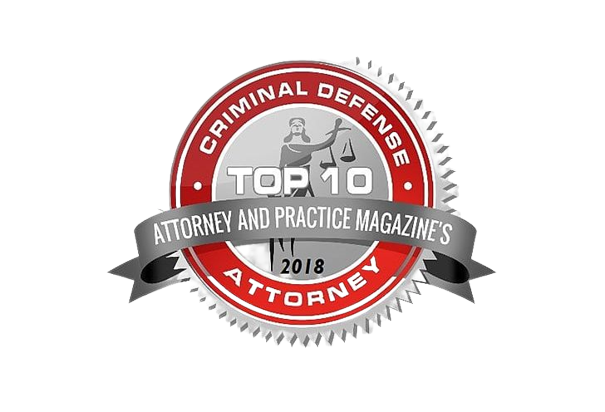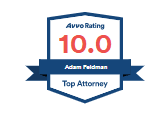Phoenix Violent Crimes Lawyer
A Former Prosecutor on Your Side
Home > Violent Crimes

2023 Super Lawyers

AV Preeminent Rated

Best Law Firm

A+ BBB Accredited
Were You Arrested for Assault or Another Violent Crime?
Are you facing a charge involving a violent crime? While some violent offenses in Arizona are classified as misdemeanors, and others as felonies, subtle changes in the nature of many misdemeanor charges often results in their re-classification as felonies, which means that there exists the real possibility of a prison sentence in the event of a conviction. There are a host of violent crimes, that is, crimes involving the use or threatened use of violence, set forth under Arizona law. We include in our definition of violent crimes not only those where actual violence occurs, but also those which involve the threat of violence. Among the many violent offenses detailed in the various statutes are homicide, violent sexual offenses, simple assault, aggravated assault, domestic violence, robbery, kidnapping, endangerment, drive by shootings, illegal discharge of a firearm, assault with intent to incite riot, and the unlawful administration of liquor or illegal drugs, to name only a few.
At The Feldman Law Firm, we have extensive experience representing countless clients charged with violent crimes, including homicide, sex crimes, assault, threatening, intimidation, aggravated assault, and other offenses involving violence and the threat of violence. As a former prosecutor, Adam Feldman has likewise prosecuted innumerable violent crimes. The end result is an attorney with a wealth of experience in the area of crimes involving the use and/or the threatened use of force.
What Types of Violent Crimes Do You Defend?
The list of all violent crimes is extensive. It includes all types of violent offenses, as well as crimes which, on their face, may appear to have nothing to do with violence, but with the addition of force or the threat of force, become violent offenses under the law. Here are some of the violent crimes we handle at The Feldman Law Firm:
Endangerment. Endangerment, sometimes referred to as reckless endangerment, consists, very simply, of recklessly endangering another person, thereby placing that person at risk of imminent death or physical injury. Endangerment is a class 1 misdemeanor, unless it involves the risk of imminent death, in which case it is a class 6 felony. The important thing to recognize about the crime of endangerment is that no one need be injured in order to substantiate the charge. The contexts in which an endangerment offense can be committed are really without limit – the charge could be the result of conditions at a construction site, or even horseplay with friends. These unusual situations aside, perhaps the most common example of endangerment arises where you are driving under the influence. If you then crash your vehicle into a car being driven by another person, you could be charged with endangering the other driver. But endangerment can arise from merely driving under the influence with another person in your car, thereby endangering the passenger.
Request Your Free Consultation
Adam Feldman Answers Online Legal Questions
Threatening or intimidating. The use of words or conduct to intimidate or to threaten to cause physical injury to another person, or to cause property damage to the property of another, is generally a class 1 misdemeanor in Arizona. It is similar to what in other jurisdictions may be referred to as menacing or in some situations even hazing. This offense also includes causing serious public inconvenience such as the evacuation of a building or other facility. If the threat is in retaliation for reporting criminal activity, or if it is committed by a street gang member, it is a class 6 felony. And if the threat or intimidation is being employed in order to assist in or induce another person to participate in street gang activity, it becomes a class 3 felony. Clearly, Arizona law takes this conduct seriously, and potential sentences run from up to six months (class 1 misdemeanor) to a maximum of seven years (class 3 felony), absent other factors affecting the sentence, such as prior criminal history.
Assault. Assault is one of the more commonly charged crimes in Arizona. There are three variations on assault charges: (a) intentional, knowing or reckless behavior that causes physical injury to another person; (b) intentionally, knowingly or recklessly placing another person in reasonable apprehension of imminent physical injury; and (c) knowingly touching another with intent to injure, insult or provoke the other person. The offense therefore includes not only the threat of violence, but also violent acts themselves, which in some other jurisdictions is referred to as “battery.” These offenses are class 1 misdemeanors, class 2 misdemeanors and class 3 misdemeanors, respectively. It should also be pointed out that, depending upon the context in which the assault occurs, and the relationship between the parties, it may be charged as a different crime, such as domestic violence. Arizona law does not separately classify vehicular assault, but the offense, by its nature, is included within the general definition of assault.
Aggravated assault. Aggravated assault consists of an assault, plus one of a number of additional factors. These include assault: (a) which causes serious physical injury; (b) using a deadly weapon or a dangerous instrument; (c) where the victim suffers disfigurement, impairment of a bodily function; (d) where the victim is restrained; (e) occurring in a private home of another person where the defendant entered the home with the intent to commit the assault; (f) which is committed by an adult on a minor under 15 years of age; (g) in violation of a protective order related to family violence; (h) against specified persons engaged in their official duties, such as a peace officer, teacher, firefighter, and others; (i) which involves taking control, or attempting to take control, of the firearm or other implement being used by a peace officer; (j) by a prisoner, or against a corrections employee; (k) which impedes normal breathing (known as criminal strangulation); or (l) in the context of domestic violence. Aggravated assault is a felony, and the classification may be as low as class 6, or as high as class 2, depending upon the particular circumstances of the case. The presumptive sentence for a first-time offender, absent aggravating or mitigating factors, runs from one year to six years imprisonment, again depending upon the specifics.
Homicide. The Arizona Criminal Code defines homicide, and includes in the definition first degree murder, second degree murder, manslaughter and negligent homicide. The particular classification depends on a number of factors. Negligent homicide consists of causing the death of another person with criminal negligence. Manslaughter requires reckless behavior, or causing death as a result of a sudden quarrel or in the heat of passion. A second degree murder charge generally involves knowingly, or under circumstances evidencing an extreme indifference to human life, but without premeditation, causing the death of another person. And first degree murder is the premeditated killing of another person, as well as felony murder, and the murder of a law enforcement officer acting in the line of duty. All homicides are felonies and penalties range as high as life in prison, and even the death penalty.
Kidnapping. The kidnapping statute includes not only the crime of kidnapping as we generally understand it, but also a number of other offenses involving restraining and taking custody of children and others.
- Custodial interference is defined as taking custody of a child (or an incompetent person), knowing you have no legal right to do so, or withholding access to a child from a parent. Custodial interference can be a misdemeanor or a felony, depending upon the circumstances of the case.
- Unlawful imprisonment is the knowing restraint of another person. If the victim is voluntarily released and suffers no physical injury, unlawful imprisonment is a class 1 misdemeanor; otherwise, it is a class 6 felony.
- Kidnapping is similar to unlawful imprisonment in that it involves the knowing restraint of another person. The purpose (that is, the intent of the defendant), is what sets it apart. To set forth a case of kidnapping, the intent must be to hold the victim for ransom, or as a shield or hostage; or for involuntary servitude (slavery); or in order to inflict death, physical injury or a sexual offense; or in furtherance of the commission of any felony; or to place the victim or another person in reasonable apprehension of imminent physical injury; or to interfere with a governmental function; or to hijack an airplane, ship, bus or other vehicle. Kidnapping is either a class 2, 3 or 4 felony.
- Access interference is a pattern of behavior that obstructs the access rights to a child of a person who is entitled to access to the child under a court order, knowing that the defendant has no right to do so. It is a class 5 felony.
- A person is guilty of a class 4 felony if he unlawfully obtains labor or services by causing bodily injury to another person, or threatening to do so; by unlawfully restraining the other person against that person’s will; or by withholding the victim’s personal property, including identification documents.
- Sex trafficking is enticing, recruiting or facilitating another person to engage in prostitution or a sexually explicit performance. It is a class 2 felony, and may be considered a dangerous crime against children, in the case of a victim under 15 years of age, in which case special sentencing rules will apply. If the victim is a minor (under 18 years of age), any sentence under this statute must be consecutive to any other sentence imposed.
- Human trafficking is likewise a class 2 felony. It criminalizes knowingly trafficking in forced labor or services.
Sexual offenses. Many sexual offenses are violent crimes. These include, among other crimes, sexual assault (including forcible rape); sexual conduct with a minor (including statutory rape); unlawful sexual conduct; child molestation; and sexual abuse. These sexual offenses are classified as high as class 2 felonies.
Arson. Offenses classified under Arizona’s arson statute include reckless burning (recklessly causing a fire or explosion leading to damage to any property), a class 1 misdemeanor; arson (knowingly damaging property by a fire or explosion) of a structure or other property, a class 4 felony; arson of an occupied structure (a class 2 felony); burning of wildlands (a misdemeanor or a felony, depending upon whether it was reckless, the result of criminal negligence, or intentional, and whether it jeopardized the safety or life of another person); and cross-burning or burning another symbol on the property of another person (a class 1 misdemeanor).
Robbery. While robbery involves theft or attempted theft, it also involves forcible coercion; thus, the nature of the offense is such that we include it in our list of violent crimes. Robbery is defined as the use of force, or the threatened use of force to coerce someone to surrender their property or to prevent resistance to the theft. Robbery is a class 4 felony. Aggravated robbery, a class 3 felony, is robbery with the aid of one or more accomplices. And armed robbery, which is a class 2 felony, involves the use or threatened use of a deadly weapon (including a simulated deadly weapon) or a dangerous instrument.
Street gang activity. Participation in a criminal street gang is a crime in Arizona and in some cases may constitute a class 2 felony. It includes not only engaging in violence or any felony as part of a street gang, but also inducing others to do so.
Disorderly conduct. This offense may likewise include violent behavior such as engaging in a brawl, using abusive language to provoke another person to physically retaliate, or recklessly discharging or displaying a deadly weapon or dangerous instrument. Disorderly conduct is generally a class 1 misdemeanor; in the event a dangerous instrument or deadly weapon is involved, it is a class 6 felony.
Harassment. We include harassment here because, while the offense does not by its terms include overtly violent behavior, the nature of the crime is such that it may involve the threat of violence. Harassment consists generally of intentionally harassing another person through anonymous communications and contact, following another person in a public place after being asked to desist, placing a person under surveillance for no legitimate purpose, and any other conduct which is designed to harass. It is chargeable as either a misdemeanor or a felony, depending upon the nature of the harassment. Aggravated harassment has the added element of either a prior domestic violence conviction or a violation of an injunction or order of protection.
Stalking. Stalking is a felony consisting of intentionally or knowingly engaging in a “course of conduct” toward another which would cause a reasonable person to be placed in fear for their safety or for the safety of someone in the victim’s immediate family.
Award Winning Criminal Defense








What is Your Track Record on Defending Clients Charge with Violent Crimes?
The above list is intended to set forth some of the more commonly charged violent offenses in Arizona. At The Feldman Law Firm, we specialize in criminal defense, and we have substantial experience representing clients charged with violent crimes. Our track record in these cases is impressive (including successful defense of homicide cases (among them second degree murder) and numerous sex crimes which are detailed elsewhere on our website), resulting in not guilty verdicts. Here are a few examples:
- Example 1. Not guilty verdict – Aggravated assault on a police officer. Responding to an alleged noise violation, the police entered the defendant’s back yard. The defendant was armed with a gun, and the prosecution claimed he was guilty of aggravated assault upon the officer. After a trial, the jury believed the defendant’s assertion that he had done nothing wrong, and that the officer’s claim of an assault was false, resulting in the defendant’s acquittal.
- Example 2. Not guilty verdict – Assault, threatening and intimidation. The defendant was fired from his job as a school employee. During a subsequent telephone conversation, the defendant threatened a former co-worker. The co-worker called the police, and the defendant was charged with assault, threatening and intimidation. We established that the co-worker had no reason to believe the defendant could carry through with the threats, and the defendant was found not guilty.
- Example 3. Not guilty verdict – Threatening and intimidation. The defendant was constantly being bullied at school. He expressed his frustration with the situation to his teacher, and stated that he was going to take his father’s gun and shoot those who had been bullying him. He was arrested for threatening and intimidation, but was found not guilty.
- Example 4. Not guilty verdict – Assault and abuse of a vulnerable adult. The defendant worked at a home for mentally challenged individuals. A co-worker claimed that the defendant used excessive force with one of the residents. That resident was mentally handicapped, and was a very large person who often became enraged, requiring multiple attendants to subdue him. The jury found the co-worker’s statements less than credible, and returned a verdict of not guilty.
These are just some examples of the successes achieved by Mr. Feldman in defense of clients charged with the commission of violent crimes. But not guilty verdicts are only a part of the story. Success means different things in different situations, and there are times when the best result is achieved through plea bargaining, thereby obtaining a dismissal, a reduction in charges, or a reduction in a defendant’s sentence. In all these cases, we have the experience and expertise to provide you with the best defense available.
Whether you have been charged with assault, homicide, or anything in between, The Feldman Law Firm is ready to assist. Our experience and track record are second to none, and we invite you to contact us to discuss your violent crime case. Call us for a free consultation.
Criminal Law Firm Near You
Schedule a Consultation



